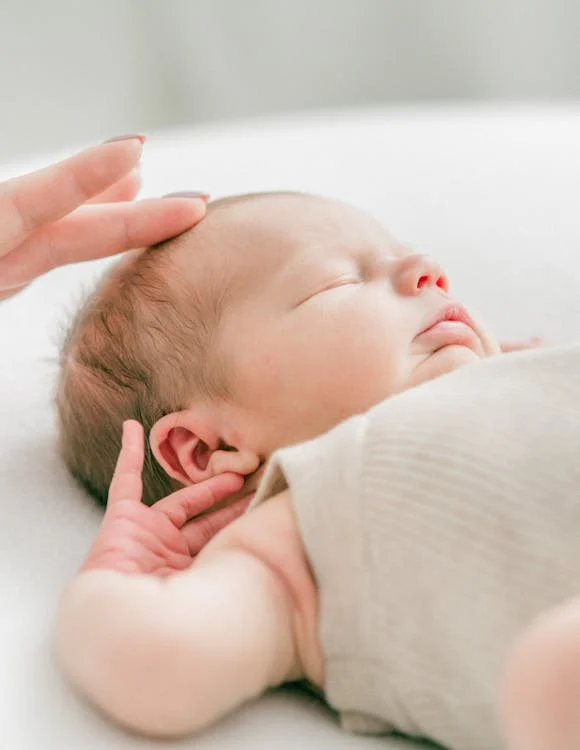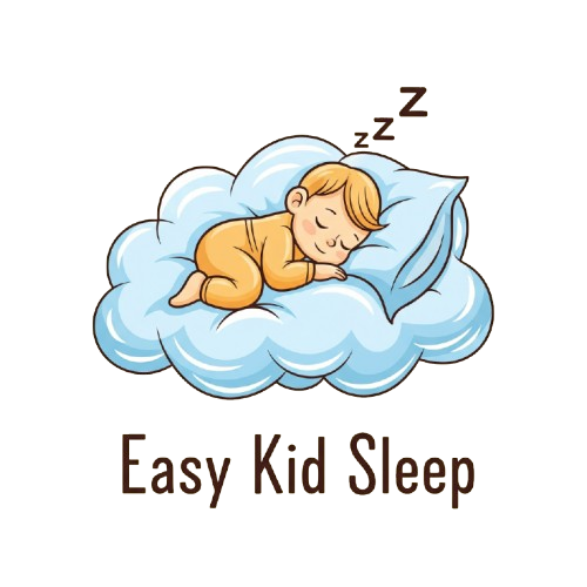You check on your sleeping baby. You might find their hair damp or their back a bit clammy. This common discovery can spark immediate worry. “Why is my baby sweating in sleep?” you might ask. Or, “Is it normal for my newborn to be sweating at night?” A little perspiration during sleep is often perfectly normal for infants. Their ability to regulate body temperature is still developing. However, excessive or persistent baby sweating at night can sometimes be a sign to investigate further. This guide will help you understand common reasons for baby sweating in sleep. We’ll also clarify when it might be time to consult your pediatrician.
Why Do Babies Sweat in Their Sleep? Common & Often Harmless Reasons
Before jumping to conclusions, know that several everyday factors can cause your baby to get hot and sweaty when sleeping.
Immature Temperature Regulation
Babies, particularly newborns, have underdeveloped nervous systems. Their sweat glands are also still maturing. This means they cannot regulate their body temperature as efficiently as older children or adults. Consequently, they might sweat more easily. This can happen even if the room doesn’t feel overly warm to you.
Overdressing or Too Much Bedding
This is one of the most frequent culprits. Parents understandably want to keep their baby warm. However, they might inadvertently overdress them. Using too many blankets is also a common issue. Remember, loose blankets are not safe for babies under 12 months.
- Tip: A good rule is to dress your baby in one more light layer than you would comfortably wear in the same room. Our guide on Summer Nights & Sleepy Babies has general principles on sleepwear, adaptable for any season.
Room Temperature Too Warm
An overly warm bedroom will naturally cause anyone to sweat. This includes your baby.
- Ideal Range: Aim for a room temperature between 18-20°C (64-68°F). This is optimal for baby sleep.
Deep Sleep Phase
Babies, like adults, can sweat more during certain phases of deep sleep. Your baby might be sweating in sleep but not hot to the touch elsewhere (like their tummy or back of the neck). If so, this deep sleep phase could be the reason.
Crying or Exertion Before Sleep
If your baby had a bout of crying before falling asleep, they might be a bit sweaty. The same applies if they were very active right before settling down.
“Baby Sweating at Night but Cold” (or Clammy Hands/Feet)
Sometimes parents notice their baby sweating but cold to touch. This often affects their hands or feet. A baby’s circulatory system is still maturing. Therefore, cooler extremities alongside a warm, sweaty core (head, neck, back) can still indicate they are a bit too warm overall. Always check their core temperature on their tummy or the back of their neck.
When Could “Baby Sweating in Sleep” Be a Sign to Investigate Further?
While often benign, certain situations regarding baby sweating at night warrant a discussion with your doctor. This is especially true if sweating is excessive or accompanied by other symptoms.
Consistent Excessive Sweating
If your baby regularly soaks through their clothes or bedding with sweat, consult a doctor. This applies even when the room is cool and they are lightly dressed. It’s a concern whether it’s baby sweating at night in summer or winter.
Sweating Accompanied by Other Symptoms
Pay close attention if sweating occurs with any of the following:
- Fever: If baby sweating in sleep is accompanied by a fever, this clearly indicates illness.
- Difficulty Breathing: Look for laboured breathing, rapid breathing, wheezing, or pauses in breathing.
- Poor Weight Gain or Feeding Difficulties: This is a concern if sweating is linked to exertion during feeding or general failure to thrive.
- Lethargy or Extreme Sleepiness: Note if your baby is more tired than usual.
- Bluish Tinge to Skin or Lips (Cyanosis): This is an emergency. Seek immediate medical attention.
- Persistent Cough: A cough alongside sweating needs checking.
Night Sweats Without Obvious Cause (e.g., “Baby Sweating at Night No Fever”)
If your child is sweating at night with no temperature and you’ve ruled out environmental factors (room temp, clothing), discuss consistent, drenching night sweats with a doctor.
Sweating Primarily from the Head
Some head sweating is normal in babies. They have more active sweat glands there. However, excessive head sweating that consistently soaks pillows can sometimes be a sign to investigate. This is particularly true if other symptoms are present.
If You Suspect Sleep Apnea
If the sweating accompanies loud snoring, gasping, or pauses in breathing, it could relate to obstructive sleep apnea. Our post on Infant Snoring: When Is It Normal, When Should You Worry? has more details.
Baby Sweating in Sleep While Sick or Teething
It’s common for a baby to sweat more while sick with a fever. Their body is fighting infection. Similarly, some babies might sweat more during intense teething periods due to discomfort. However, if the sweating is extreme or other worrying symptoms are present, still check with your doctor.
What You Can Do About Baby Sweating & When to Call the Doctor
- Check the Environment First: Ensure the room is cool and well-ventilated. Dress your baby in light, breathable layers; cotton is a great choice. Avoid hats indoors for sleep.
- Monitor Your Baby’s Core Temperature: Feel the back of their neck or their tummy. These areas should feel warm and dry, not hot or clammy.
- Don’t Over-Bundle: Resist the urge to use too many blankets. Remember, loose bedding is unsafe for young babies. Sleep sacks are a good, safe option.
- Ensure Adequate Hydration: Make sure your baby is well-hydrated, especially if they are sweating more than usual.
When to Call Your Pediatrician or GP: Always consult your doctor if:
- You are concerned about the amount your baby is sweating in sleep.
- The sweating occurs with any of the “red flag” symptoms listed above.
- Your parental intuition tells you something isn’t right. It’s always better to check.
Conclusion:
Occasional baby sweating in sleep is often a normal part of their development. It can also be a response to their immediate environment. By ensuring a cool sleep space and appropriate clothing, you can manage most instances. However, if your baby is sweating at night excessively, consistently, or alongside other concerning symptoms like fever or breathing difficulties, do not hesitate to seek medical advice. Your peace of mind and your baby’s well-being are what matter most.
For more tips on creating a comfortable sleep space, see our guide on Baby Waking Up Every Hour? Common Causes & Gentle Solutions. If you’re concerned about general night-time fussiness, our post on Overtired Baby Won’t Sleep? Soothing Strategies That Actually Work might be helpful.
What did you think of this post? Does your baby sweat in their sleep? Share your experiences or questions in the comments below!

